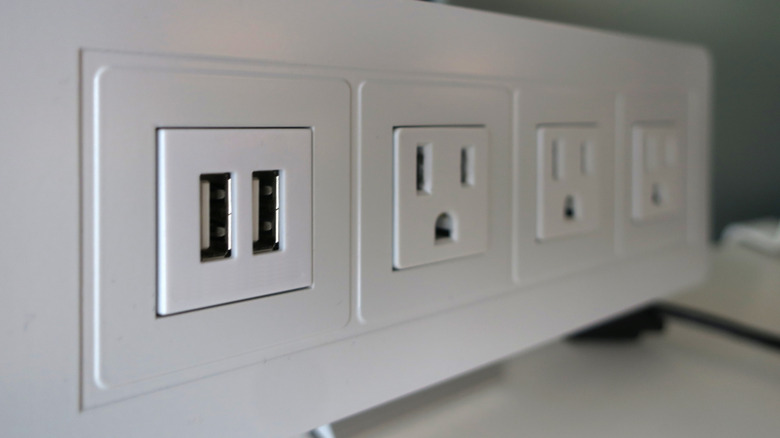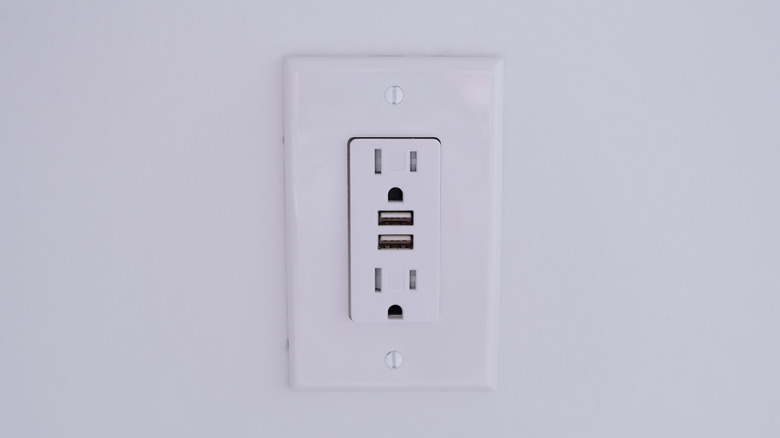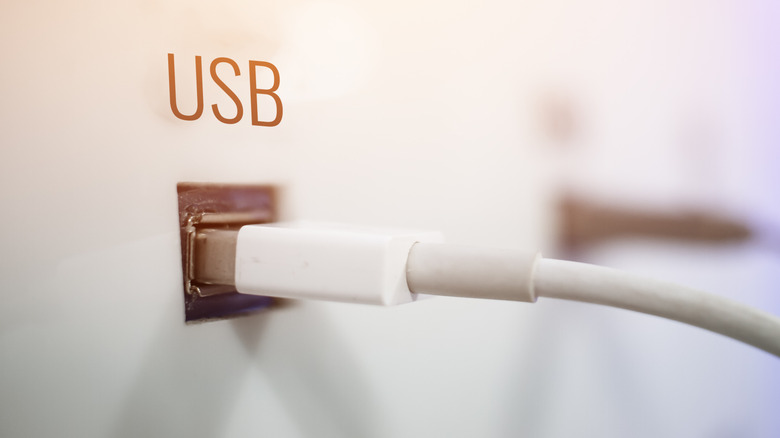USB Outlets: The Pros And Cons To Consider Before Installing In Your Home
If you have a lot of USB devices to charge, you might have considered installing USB outlets at home. Having USB wall outlets around can cut out the middleman, so to speak; it reduces the need for adapters, allowing you to plug your device directly into the wall whenever you need to (even if they're not quite as convenient as using wireless chargers for your smartphone). And while there are a lot of great smart home gadgets under $50 that can be life-changing, a USB outlet is one of simplest ways to increase convenience in your home.
Of course, not everyone needs a wall USB outlet in their home, so you'll need to decide for yourself whether it's worth the effort of installation. Additionally, while there are a lot of benefits of installing USB wall outlets, they have some drawbacks, as well, so consider both the pros and cons before pulling out your wallet and screwdriver.
The benefits of installing USB outlets at home
There's no shortage of great reasons to install USB outlets at home. As mentioned above, one of the key benefits is the improved convenience you'll get. With USB outlets, you'll no longer have to deal with bulky adapters and can always charge your devices when needed, right from the wall. You'll also be able to add multiple USB ports to the same outlet, and if you choose a combo outlet, you can simultaneously continue plugging in lamps, computers, or whatever else into the regular sockets.
Getting rid of bulky adapters is also useful because it can reduce phantom power usage and improve your home's energy-efficiency. This can help you save money on your electric bill each month and can help the environment. Using a lot of power adapters on a power strip can also be unsafe, so USB outlets are a much safer alternative. Fortunately, installing these outlets isn't too expensive, although they do understandably tend to cost a bit more than standard wall outlets.
Another great advantage of USB outlets is that they'll charge devices much more quickly when compared to plugging them into a laptop to charge. They're often faster than a manufacturer's adapter, as well. However, keep in mind that the speed goes down if you have a lot of ports on one outlet and charge multiple devices at once.
Why you may want to reconsider installing USB wall outlets
Although there are many great reasons to install USB wall outlets, there are some drawbacks to consider. One of the biggest disadvantages is also one of the most obvious: if you replace a standard wall outlet with an outlet that includes only USB ports, you'll no longer be able to plug in electronics with standard plugs in that outlet. Fortunately, there are combination outlets available that have both standard ports and USB ports together.
Additionally, you'll need to carefully decide which type of USB ports you need the most. Depending on whether you get a Type-C or Type-A USB wall outlet, you may need an adapter to charge devices of the other type. While the cost for USB outlets is pretty low, they're still more expensive than standard wall outlets. These outlets are also more susceptible to damage than other wall outlets because of the types of ports and plugs they use.
A final thing to be aware of is that although USB outlets can charge devices quickly, they could actually be slower if you have a lot of different USB ports on one outlet. With more ports, each one will charge devices more slowly. Keep this all in mind as you make your decision.


